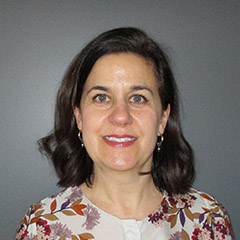Project Overview
To analyze the efficiency, effectiveness, and impact of the GPE Multiplier, an innovative financing instrument for education, Mathematica conducted two studies of the Multiplier and its co-financing.
As a trusted learning partner with expertise in global education and mixed-methods evaluations, Mathematica assessed the Multiplier’s contributions towards GPE’s strategic goals, highlighted key results across programs, and identified program areas for refinement.
Results for Development (R4D)
Global Partnership for Education (GPE)
The Global Partnership for Education (GPE) Multiplier is an innovative financial instrument that catalyzes increased investments in education from co-financers, such as multilateral development banks, bilateral donors, and private funders. From 2022 to 2023, GPE commissioned Mathematica to conduct a mixed-methods evaluation to assess the financial additionality, value additionality, and process efficiency of the Multiplier, drawing on a desk review of program documents, interviews with Multiplier stakeholders, and secondary education financing data. The evaluation presented several recommendations to promote efficiency, reduce transaction costs for GPE partner countries, and clarify the Multiplier’s objectives to support education systems transformation. The evaluation identified critical gaps in tracking the disbursement, recipients, efficiency, and effectiveness of Multiplier co-financing.
Following these findings, in 2024, GPE commissioned Mathematica to conduct a follow-up study to analyze the efficiency, effectiveness, and alignment with GPE priorities of the co-financing affiliated with the Multiplier. Mathematica applied GPE’s results area framework and gender coding methodology to classify and cost co-financed activities and aggregate results along GPE priority areas, and synthesized information from various documents and datasets into a database. Drawing on program documents and interviews with co-financers, Mathematica also characterized the efficiency, in terms of timeliness and costs, of co-financed programs.
Related Staff
Efficiency Meets Impact.
That's Progress Together.
To solve their most pressing challenges, organizations turn to Mathematica for deeply integrated expertise. We bring together subject matter and policy experts, data scientists, methodologists, and technologists who work across topics and sectors to help our partners design, improve, and scale evidence-based solutions.
Work With Us



